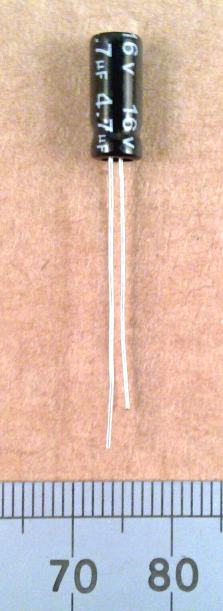Non-Polar
or Bipolar Electrolytic Capacitor 4.7uF, 16V


Non-Polar and bipolar are both used to describe electrolytic
capacitors which may have a voltage of either polarity
applied. In this particular case, the only indication that
the capacitor is a bipolar type is the absence of a polarity
marking. Often there will be some other indication such as
an "N.P." mark.
The schematic symbol is usually that of an ordinary
capacitor. These need to be used where you can't guarantee
that the voltage on the capacitor will always be in the correct
direction. This is often due to there being a significant
A.C. signal voltage present which inverts the polarity on the
capacitor for some of the time. That's despite there being a
correct average D.C. bias on the cap, or when there is no signal
present. This is a very common mistake seen when normal
electrolytic capacitors are used as a D.C. blocker in real hi-fi
amps and old TV sets. The capacitor dies, but only after a
year or so, by which time you've manufactured thousands of units.
In the circuit, C8 is used to block the D.C. voltage between VR1
and the audio amplifier stages. You can see that the D.C.
voltages marked on the schematic diagram are very close on either
side, so a non-polar type is called for.
Navigate
Up
Recent edit history
13-NOV-2025: Canonicalised

